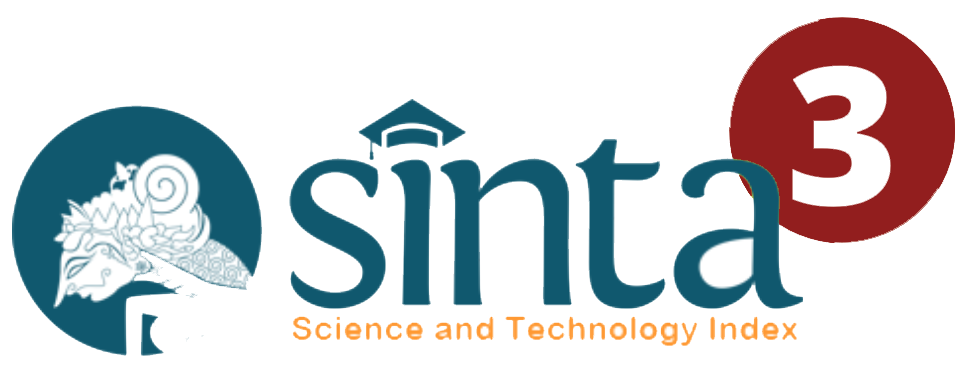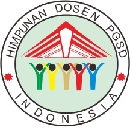THE INFLUENCE OF USING KIT OF SCIENCE FOR KIDS TO ELEMENTARY SCHOOL STUDENTS’ CONCEPT MASTERY
DOI:
https://doi.org/10.22460/pej.v4i1.1617Abstract
This research was conducted to determine the increase in concept mastery of primary school students' teaching material through the use of media kits of science for kids. The research method used was quasi-experimental research using the matching only pretest and posttest control group design. The learning process uses the media kit of science for kids and the traditional learning media is used as a comparison. Learning takes place during four meetings, each learning process is carried out observing the implementation of learning activities. Research subjects were 55 students consisting of 28 students using the media kit of science for kids and 27 students with traditional learning media. The research instrument uses multiple choice tests for concept mastery. The data analysis technique used n-gain mean data and non-parametric test t test. The value of n-gain in class with kit of science for kids media is 0.47 while in class with traditional learning media is 0.26. The results showed that increased understanding of the material using the kit of science for kids was higher than students who received traditional learning media.References
Afifah, R. N., Syaodih, E., Suhandi, A., Maftuh, B., Hermita, N., Handayani, H., ... & Samsudin, A. (2019). Develop children’s science process skills through building activities in center of beam: optical geometry on focus. In Journal of Physics: Conference Series (Vol. 1280, No. 5, p. 052016). IOP Publishing.
Akpınar, E., Yıldız, E., Tatar, N., & Ergin, Ö. (2009). Students ’ attitudes toward science and technology : an investigation of gender, grade level, and academic achievement. Procedia - Social and Behavioral Sciences, 1 (1) 2804–2808.
Balım, A., G. (2009). The Effects of Discovery Learning on Students’ Success and Inquiry Learning Skills. Eurasian Journal of Educational Research, Issue 35, Spring 2009, 1-20.
Fraenkel, et al. (2012). How to Design and Evaluate Research in Education. New York: Mc Graw-Hill.
Gumala, Y. (2016,). Video-based Blogging in Learning (vlog) to Develop The Interaction of Teachers and Students. In of The International Seminar on Philosophy of Education (p. 215).
Gumala, Y., Sopandi, W., Kadarohman, A., & Sujana, A. (2019). Analysis of air pollution conception on pre-service elementary teachers. In Journal of Physics: Conference Series (Vol. 1157, No. 4, p. 042023). IOP Publishing.
Gumala, Y., Suhandi, A., Syaodih, E., Maftuh, B., Hermita, N., & Samsudin, A. (2019). Facilitating of fourth grade students problem solving skills on gravity. In Journal of Physics: Conference Series (Vol. 1157, No. 3, p. 032041). IOP Publishing.
Gumala, Y., Suhandi, A., Syaodih, E., Maftuh, B., Ningsih, A. R., Afiffah, R. N., ... & Samsudin, A. (2019). Facilitating of fourth grade student’s problem solving skills on friction. In Journal of Physics: Conference Series (Vol. 1280, No. 5, p. 052009). IOP Publishing.
Jarvis, M. (2011). Teori-Teori Psikologi, Pendekatan Modern Untuk Memahami. Perilaku, Perasaan & Pikiran Manusia. Bandung: Nusa Media.
Jenkins, L. L. (2011). Using citizen science beyond teaching science content : a strategy for making science relevant to students’ lives. Cultural Studies of Science Education, 6 (2), 501-508.
Jones, Gail., Robertson, L., Gardner, GE., Dotger, S., Blanchard, MR. Differential. (2012) Use of Elementary Science Kits. International Journal of Science Education 34 15 2371–2391.
Maharbid, D. A., Maharbid, T. A., Gumala, Y., & Herman, T. (2018). Mobile game design for understanding fractional conception in elementary school. In International Conference on Mathematics and Science Education of Universitas Pendidikan Indonesia (Vol. 3, pp. 836-841).
Nelson, J. D., Divjak, B., Gudmundsdottir, G., Martignon, L. F., & Meder, B. (2014). Children’s sequential information search is sensitive to environmental probabilities. Cognition, 130, 74–80.
Ningsih, A. R., Afifah, R. N., Gumala, Y., Handayani, H., Suhandi, A., Syaodih, E., ... & Samsudin, A. (2019). A preliminary study: how is extent the fourth-grade students understanding of the magnetic force?. In Journal of Physics: Conference Series (Vol. 1280, No. 5, p. 052048). IOP Publishing.
Nurkaeti, N., Aryanto, S., & Gumala, Y. (2019). READ ALOUD: A LITERACY ACTIVITY IN ELEMENTARY SCHOOL. PrimaryEdu-Journal of Primary Education, 3(2), 55-61.
Purwandari, Ayu. (2014). Model Experiential Learning Bernuansa Vak (Visual, Auditori, Kinestetik) Berpengaruh Terhadap Hasil Belajar Ipa Kelas V Sd Gugus Letkol Wisnu. Jurnal Mimbar PGSD Universitas Pendidikan Ganesha, Vol: 2 No: 1.
Schiever, julia. et al. (2017). Elementary School Children’s Understanding of Science: The Implementation of an Extracurricular Science Intervention. Contemporary Educational Psychology
Sudijono, A. (2009). Pengantar Evaluasi Pendidikan. Jakarta: Rajawali Pers.
Susanto, Ahmad.(2014). Teori Belajar dan Pembelajaran di Sekolah Dasar. Jakarta : Kencana
Syaodih, E., Suhandi, A., Maftuh, B., Hermita, N., Handayani, H., Nurafifah, R., ... & Samsudin, A. (2019). Identifying kindergarten children’s idea about heat and temperature concept. In Journal of Physics: Conference Series (Vol. 1280, No. 5, p. 052018). IOP Publishing.
Trivena, T., Widodo, A., Sopandi, W., Budiarti, T., & Gumala, Y. (2018). Fifth-grade elementary school perception of STEM. In International Conference on Mathematics and Science Education of Universitas Pendidikan Indonesia (Vol. 3, pp. 475-480).
Warsita A N, Nurjhani M, Shintawati R. (2018). Relationship between Students’ Concept Mastery and The Ability to Assess Source Credibility through Problem Based Learning in Environmental Pollution Concept. Indonesian Journal of Biology Education, 1(1):










